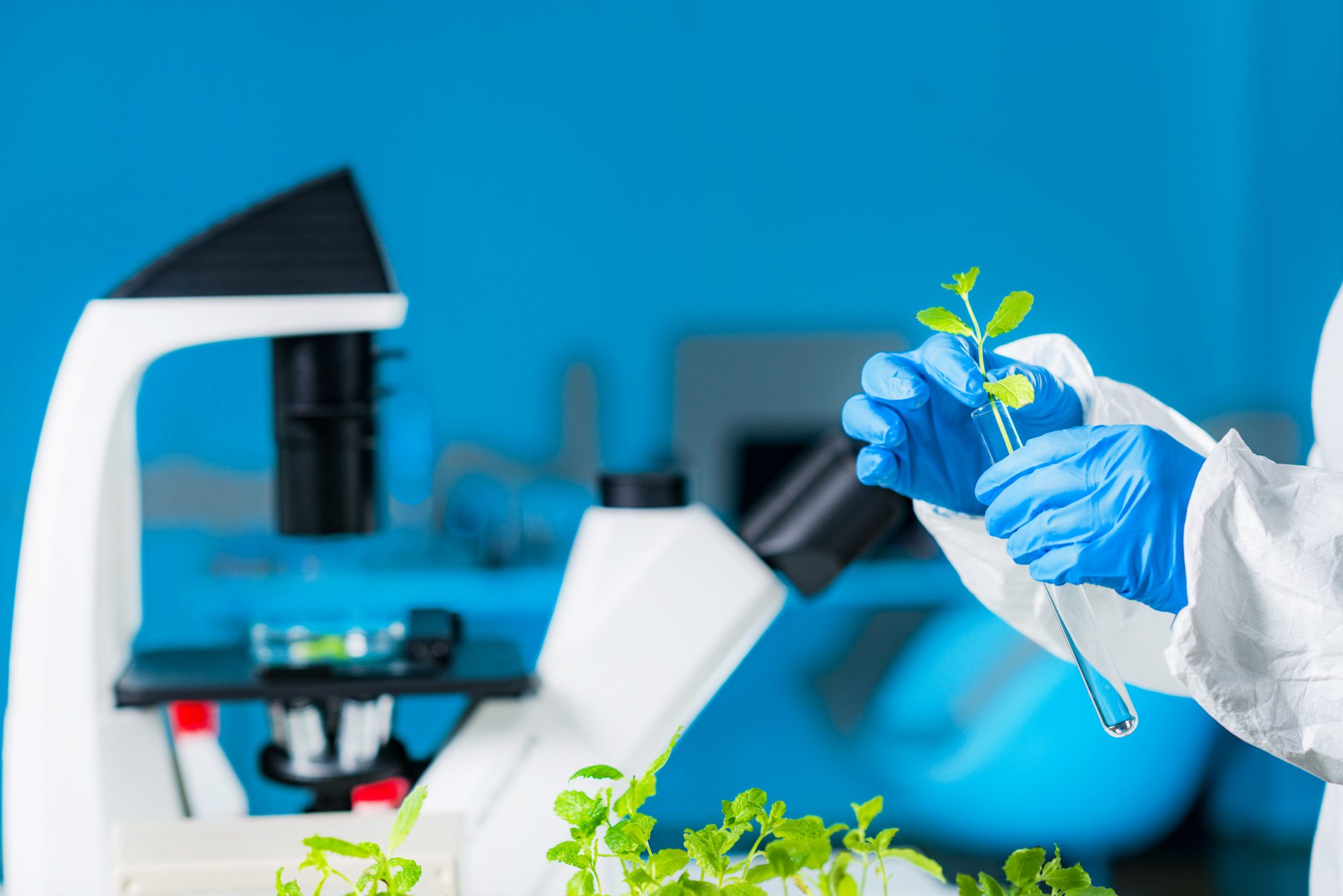Note. Some sections may not be updated for 2023. Please see labels for potential changes.
Maximum profits in row crop production depend on successful and accurate diagnosis of disease or insect damage. An accurate diagnosis can aid farmers in the implementation of an effective integrated pest management program. One important part of diagnosis is plant tissue samples to help identify issues and determine best management options.
The Alabama Cooperative Extension System supports two plant diagnostic laboratories. One is at Auburn University; the other is located in Birmingham at the Birmingham Botanical Gardens.
The Plant Diagnostic Laboratory at Auburn University provides three services: plant problem diagnosis, soil nematode analysis, and insect identification. Plant problems sent to the lab include diseases, nematode injury, insect damage, chemical damage, environmental stress, horticultural and agronomic problems, or wildlife damage.
Plant samples at the Auburn University Plant Diagnostic Lab are initially examined by a plant pathologist. Some samples may then be referred to Extension specialists in entomology, agronomy, horticulture, or wildlife.
In addition to plant problem diagnosis, soil nematode analysis, and insect identification, plants are also received for identification. These plants are referred to agronomists and horticulturists who typically respond to the inquiries.
Download Submitting Samples for Diagnosis, Analysis and Identification, IPM-1294.
For questions about accessibility or to request accommodations, contact Extension Communications and Marketing at 334-844-5696 or extcomm@aces.edu.
Related Topics
Maximum profits in corn production depend on an effective and economical insect management program.
To plan such a program, producers must determine whether insects are present and the amount of damage being done. The “tools of technology” available in managing corn insects are cultural practices, the selective use of insecticides, insect scouting, transgenic varieties, and beneficial arthropods. The effectiveness of these tools can be maximized when used by all growers over a large area. Insect management does not mean reduction of the insect population to zero; instead it means a reduction below the level of economic damage.
This guide was compiled by both current and former Extension entomologists, plant pathologists, weed scientists, and a pesticide education specialist.
Download the Corn IPM Guide, IPM-0428.
For questions about accessibility or to request accommodations, contact Extension Communications and Marketing at 334-844-5696 or extcomm@aces.edu.
Pastures and forage crop production depends on an effective and economical insect management program.
To plan such a program, producers must determine whether insects are present and the amount of damage being done. The “tools of technology” available in managing pasture and forage insects are cultural practices, the selective use of insecticides, insect scouting, transgenic varieties, and beneficial arthropods. The effectiveness of these tools can be maximized when used by all growers over a large area. Insect management does not mean reduction of the insect population to zero; instead it means a reduction below the level of economic damage.
This guide was compiled by both current and former Extension entomologists, plant pathologists, weed scientists, and a pesticide education specialist.
Download Pastures and Forage Crop IPM Guide, IPM-0028.
For questions about accessibility or to request accommodations, contact Extension Communications and Marketing at 334-844-5696 or extcomm@aces.edu.
Maximum profits in soybean production depend on an effective and economical insect management program.
To plan such a program, producers must determine whether insects are present and the amount of damage being done. The “tools of technology” available in managing soybean insects are cultural practices, the selective use of insecticides, insect scouting, transgenic varieties, and beneficial arthropods. The effectiveness of these tools can be maximized when used by all growers over a large area. Insect management does not mean reduction of the insect population to zero; instead it means a reduction below the level of economic damage.
This guide was compiled by both current and former Extension entomologists, plant pathologists, weed scientists, and a pesticide education specialist.
Download the Soybean IPM Guide, IPM-0413.
For questions about accessibility or to request accommodations, contact Extension Communications and Marketing at 334-844-5696 or extcomm@aces.edu.

